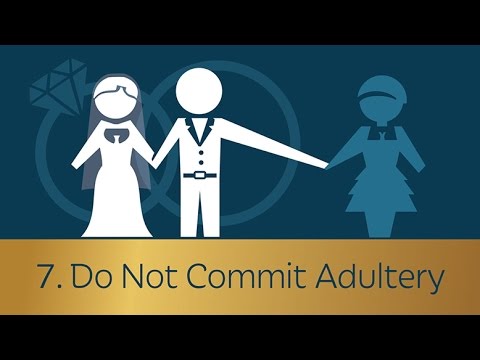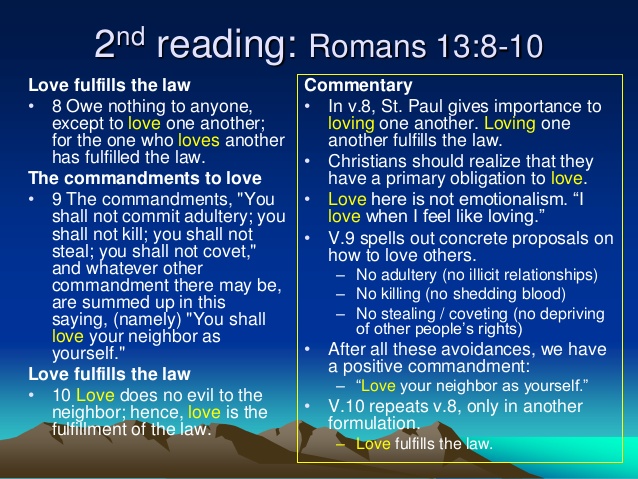Click here to return to Blog Post Intro
God is holy and faithful. He calls for and delights to see faithfulness in His people—faithfulness first to Him and His Word, then to other people, especially faithfulness between a husband and a wife.
The First Marriage
When Adam saw Eve for the first time, he responded, “This one matches me and makes me complete. She is my just-right companion in every dimension. She is God’s gift to me and I am God’s gift to her. I commit myself to love, care, and provide for her just as I do for myself, because she is part of me.”
This marriage was the crowning event of the sixth day and part of what God blessed and declared “very good” (Genesis 1:31).
However, we know that Adam and Eve ultimately made a poor choice to disobey God’s only command to them. From Genesis to Revelation, the Bible shows that Satan’s tactics have not changed—he lies and distorts the Word of God, creating doubts about God and His will for the purpose of destroying family relationships and family harmony.
Chapters 4 and 5 of Genesis tell the story of Adam and Eve continuing life as a married couple outside the Garden of Eden. They worked the land, making a living and experiencing the God-given joy of intimacy as husband and wife, along with the blessing and challenge of children.
Avoiding Adultery
The seventh commandment is a caution, a warning that we must watch ourselves carefully to avoid it. Adultery is a choice, not something that just happens.
This command is a call to treasure one’s spouse through words of encouragement; by acts of kindness and service; with thoughtful, loving gifts; through a loving touch that reassures and expresses commitment; and with time spent together talking through struggles and triumphs, on sad days, mad days, and glad days.
God wants all relationships marked by His love and holiness, which is evident when we see how seriously God views this sin. In Deuteronomy 22:22, Moses emphasizes the Lord’s command that those who committed adultery (as well as their partners in the sinful acts) were to be stoned to death. God’s statement was that putting the participants to death would purge Israel of this evil. Adultery is against the Lord’s will for anyone, but He especially abhors it in His people, those whom He calls holy and has treasured and set apart to do His will.
Temptation never goes away, no matter how old one may become. David was around 47 years old when he met Bathsheba. Therefore, caution is called for at all times. God’s mercy is often seen, but He sometimes allows consequences for sin to remain to fulfill all His good purposes as He did in the case of David.
As a consequence of David’s sin, the Lord said the sword would not depart from David’s house. Scripture records that four of David’s sons died in the days and years ahead (from 1 Samuel 12:18; 13:28-29; 16:14-15; and 1 Kings 2:25). And the child that Bathsheba carried ultimately died.
1 Kings 15:5 went on to say, “David did what was right in the eyes of the Lord, and had not turned aside from anything He commanded him all the days of his life, except in the matter of Uriah the Hittite.” David left a legacy of following the Lord and His Word for anyone to follow except for that “matter” which was grievous to David and to the Lord. It certainly affected the remainder of David’s life and his testimony before others. It tarnished his record and touched his legacy with a note of remorse. It is a note of caution to all of us and a call to carefully weigh our choices.
Joseph: An Example to Follow
Joseph was in a prickly dilemma, as his master’s wife attempted to seduce him while her husband was away. He chose to do the right thing.
Genesis 39:9 shows the three reasons Joseph avoided temptation:
- He saw how giving in to temptation would affect his relationship with others, particularly Potiphar.
- He saw how participating in adultery would personally affect him. Committing such a “great evil” would create more evil in his heart rather than opening his heart to experience the good that God wants each of us to choose.
- He saw that sinning with Potiphar’s wife would affect his relationship with God. It was “sin against God,” an affront to Him personally.
Joseph refused Potiphar’s wife’s sexual advances not once, but “day after day” (Genesis 39:10).
Questions to ask yourself when facing the temptation to sin sexually:
- How does this choice affect my relationship with others?
- How does this choice affect others, specifically, their relationship with me and the many relationships we share?
- How does this choice affect my relationship with myself?
- How does this choice affect my relationship with God?
Following the seventh commandment is more than avoiding adultery. It is also honoring and enjoying the marriage relationship to the fullest, treasuring one’s mate God’s way.
Jesus Speaks About Marriage and Adultery
In His Sermon on the Mount (Matthew 5:27-30), Jesus expands the command “You shall not commit adultery” to include covetous look and thought. Jesus’ focus on the lustful look, reminding us that obeying the prohibition against adultery is more than avoiding the act of sexual intercourse outside marriage. It is a matter of safeguarding our hearts by carefully guarding even the way in which we glace at those of the opposite sex.
In David’s words, to eliminate the source of temptation, to “pluck it out”, he says, “I will set no worthless thing before my eyes; I hate the work of those who fall away; it shall not fasten its grip on me” (Psalm 101:3). David did not deal with electronic images or printed words, but his solution to the problem of visual temptation is still applicable today.
God’s original intention for marriage was one man with one woman, inseparable for life. God gave us marriage as a gift. God gave permission for divorce but while He permitted this action, He never designed marriage with divorce in mind. God “hates divorce.” According to Malachi 2:15, God wants “godly offspring” coming from each home.
More New Testament Wisdom
When Paul wrote that the body of a Christian is the temple of the Holy Spirit, he uses the Greek word naos (1 Corinthians 6:19), which refers to the Holy of Holies, the room where the Ark of the Covenant rested and which the high priest entered every year on the Day of Atonement. Never should an immoral sexual relationship be a part of the Holy of Holies.
Paul exhorted us to always use our bodies in honorable ways, never selfishly for any impurity or in “lustful passion.”
In Romans 13:8-10, Paul says, “You shall not commit adultery” (and the other commandments) are summed up in this saying, “You shall love your neighbor as yourself.” Love does no wrong to a neighbor. Love therefore is the fulfillment of the law.
Ephesians 5:21-33 is one of the most complete discussions in Scripture on building a strong marriage. God’s design is for the husband-wife relationship to begin with both partners being controlled by the Holy Spirit and living in the fear of Christ, always bowing to His Lordship and depending on His power for living. Thus, each is empowered by Him to serve the other.
The Spirit-filled husband loves his wife as he does his own body, nourishing and cherishing her as a special treasure, and he depends on the Lord for wisdom and power to provide for and protect her and her family. The resulting security allows her the freedom to submit without fear, knowing that he has her best interests in mind.
When the Scriptures speak of two becoming one, much more than a physical union is implied. God’s plan is for husband and wife to share a single vision, seeking what God wants for them individually and as a couple. The goal of every marriage should be two lives spent living and working together doing the will of God.
Out of This World Leaders go beyond not committing adultery; they also treasure marriage God’s Way!




